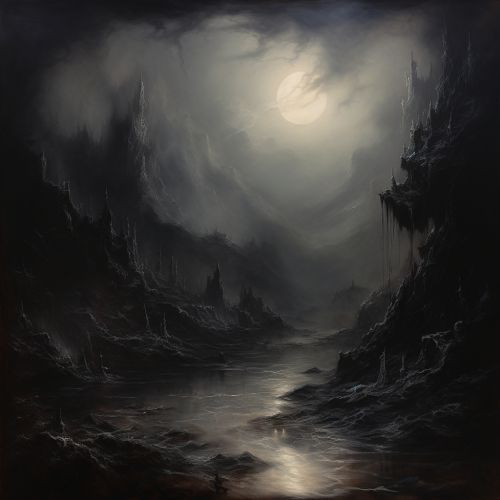Tartarus
Origins and Mythology
In ancient Greek mythology, Tartarus is a primordial deity, as well as a place in the underworld. As a deity, Tartarus is one of the first entities to exist in the universe, born from Chaos, the void of nothingness that existed before the world. Other deities born from Chaos include Gaia (Earth), Eros (Love), and Erebus (Darkness). As a location, Tartarus is described as a deep, gloomy abyss located far beneath the earth, where the wicked are punished after death.


Tartarus as a Deity
Tartarus is one of the primordial deities in Greek mythology, representing the deep abyss. As a deity, Tartarus is not often personified and does not have a significant role in many myths. However, Tartarus is the father of several monstrous beings in Greek mythology. Together with Gaia, Tartarus fathered the giant Typhon, the most fearsome and powerful monster in Greek mythology. Tartarus also fathered the Gigantes, the monstrous giants who battled the gods in the Gigantomachy, and Echidna, a half-woman, half-serpent creature known as the "Mother of All Monsters".
Tartarus as a Place
As a place, Tartarus is described as a deep, dark abyss, located far beneath the earth. It is often depicted as a prison for the wicked, where they are punished for their sins after death. Tartarus is said to be surrounded by a bronze fence with gates guarded by the Hecatoncheires, giant creatures with a hundred hands and fifty heads. The souls of the wicked are judged by three judges: Minos, Rhadamanthus, and Aeacus, who decide their punishment based on their deeds in life.
Inhabitants of Tartarus
Several notable figures in Greek mythology are said to be imprisoned in Tartarus. The Titans, the elder gods who ruled before the Olympians, were cast into Tartarus after they were defeated by the Olympians in the Titanomachy. The giant Typhon, who challenged Zeus for the rule of the cosmos, was also cast into Tartarus after his defeat. Other inhabitants of Tartarus include the Danaides, fifty women who were condemned to eternally fill a leaking jar with water for murdering their husbands, and Sisyphus, a king who was punished for his deceitfulness by being forced to eternally push a boulder up a hill, only for it to roll back down each time.
Tartarus in Literature
Tartarus features prominently in several works of ancient Greek literature. In Homer's Iliad, Tartarus is described as the most terrible place in the underworld, a pit beneath the earth as far from the land of the living as the earth is from the sky. In Hesiod's Theogony, Tartarus is both a primordial deity and a place of punishment. In Virgil's Aeneid, Tartarus is depicted as a massive fortress with a river of fire and a hydra-headed guard.
